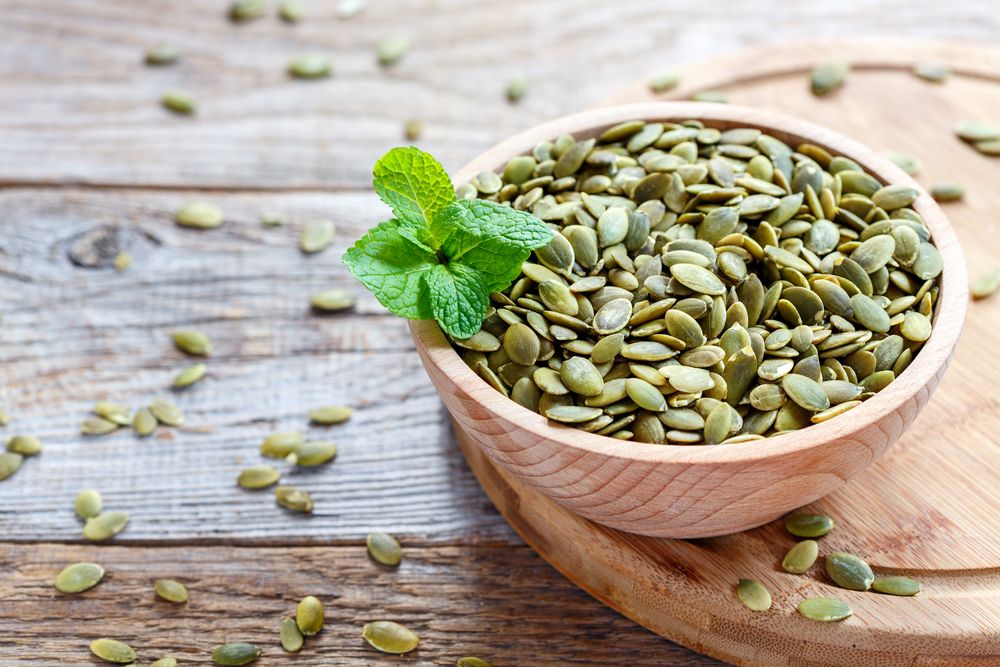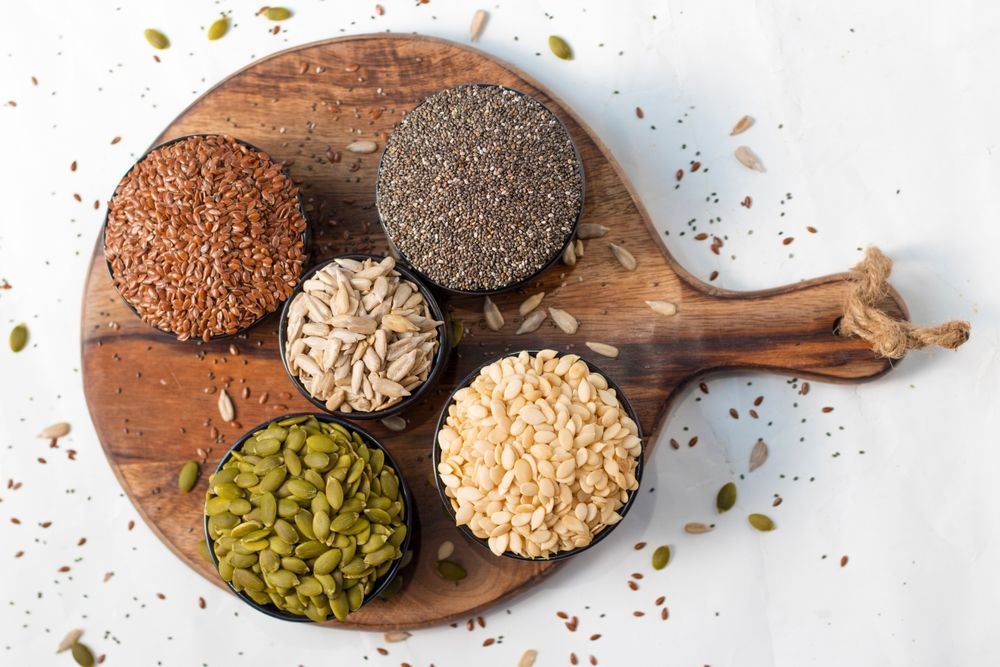Seeds, with their ancient lineage as the building blocks of plant life, have recently garnered newfound appreciation for their exceptional nutritional value. Packed with essential nutrients ranging from fiber and healthy fats to vitamins and minerals, seeds offer a concentrated boost to our well-being.
Let's delve into the importance of fiber. Despite recommendations for adequate intake—25 grams for women and 38 grams for men—many Americans fall short, with an average consumption of just 17 grams. Fortunately, seeds emerge as a convenient solution to bridge this dietary gap, serving as excellent sources of fiber. Why does fiber matter? Meeting your fiber needs can lower the risk of colon cancer, promote a thriving gut microbiome, and aid in maintaining stable blood sugar levels.
Seeds boast an impressive omega-3 fatty acid content, renowned for its anti-inflammatory and anti-anxiety properties. Moreover, for those seeking to boost their protein intake, seeds offer a valuable option, particularly beneficial for vegans and vegetarians looking for plant-based sources. Additionally, they are allergy-friendly, with only sesame seeds categorized among the top nine allergens.
Integrating an array of seeds into daily meals presents a simple yet impactful method to enhance nutritional diversity. Whether sprinkling crispy roasted pumpkin seeds over salads, blending delicate chia seeds into morning smoothies, or incorporating flaxseed into beloved bread recipes, these additions can transform ordinary dishes into nutritional powerhouses with just a tablespoon or two.
While the seed kingdom boasts myriad varieties, we delve into the top six healthiest seeds, each showcasing a distinctive nutrient profile and associated benefits. These miniature wonders underscore the adage that great things often come in small packages.
1) Chia Seeds

Small yet mighty, chia seeds pack a nutritional punch. Just a 2-tablespoon serving yields 9 grams of fiber, 4 grams of protein, and significant amounts of micronutrients such as iron, magnesium, phosphorus, and zinc. As a plant-based source of omega-3 fatty acids, chia seeds contribute to heart health by reducing total cholesterol, triglycerides, and LDL (bad) cholesterol, while increasing HDL (good) cholesterol, as evidenced by a 2021 meta-analysis. Moreover, research indicates that chia seeds can help lower blood pressure in individuals with type 2 diabetes.
To reap the benefits of chia seeds, incorporate them into smoothies, overnight oats, or create a delectable chia seed pudding.
2) Flax Seeds

When considering flax seeds, you might envision them as components of bland, health-focused cereals or as a key ingredient in vegan flax "eggs." However, did you know that flax seeds offer a multitude of health benefits? In just a 2-tablespoon serving, they provide 4 grams of fiber, 2.5 grams of protein, and 6 grams of beneficial omega-3 fatty acids. Incorporating flax seeds into your diet can aid in alleviating constipation, promoting diversity in the gut microbiome, reducing both systolic and diastolic blood pressure, and mitigating blood sugar spikes following a carbohydrate-rich meal. Moreover, flax seeds are rich in essential micronutrients such as copper, manganese, and magnesium.
Embrace the versatility of flax seeds by incorporating them into various culinary creations, including veggie burgers, meatballs, muffins, and smoothies.
3) Hemp Seeds

Although hemp seeds are derived from the cannabis sativa plant, it's important to note that they do not contain CBD or THC. Instead, they are rich in healthy fats, boasting an optimal ratio (3:1) of omega-6 to omega-3 fatty acids. Maintaining a low ratio of omega-6 to omega-3 is crucial for preventing the onset of chronic diseases, as excessive omega-6 levels can promote inflammation and cardiovascular issues. The conventional Western diet typically exhibits a high ratio of omega-6 to omega-3 at 15:1, whereas a healthy ratio falls between 3:1 to 5:1. A 3-tablespoon serving of hemp seeds provides 10 grams of complete protein, along with essential nutrients such as phosphorus, magnesium, thiamine, and 100% of your daily value of manganese.
To introduce a variety of textures, consider incorporating hemp seeds into your yogurt or smoothie bowls.
4) Quinoa

Often touted as a whole grain, quinoa may surprise you—it's actually a seed! Incorporating quinoa into your diet can contribute to heart health by reducing risk factors associated with cardiovascular disease, including triglycerides, total cholesterol, LDL cholesterol, insulin levels, and waist circumference, as indicated by a 2020 meta-analysis. With 8 grams of protein per 1 cup cooked serving, quinoa serves as an excellent plant-based protein source. Its inclusion in a vegan diet addresses concerns about protein intake, which can pose a challenge for some vegans. Moreover, quinoa is safe for consumption by individuals with celiac disease.
Quinoa presents a nutritious carbohydrate source ideal for adding to salads or bowls. You can also get creative by preparing quinoa-stuffed peppers or crafting black bean burgers with this versatile ingredient.
5) Sesame Seeds

Frequently featured in Asian and Middle Eastern culinary traditions, sesame seeds are available in three distinct varieties: white, black, and golden brown. They serve as a notable source of vitamins B1, B3, and B6. Vitamin B6 plays a crucial role in the metabolism of carbohydrates, fats, and proteins. Additionally, sesame seeds contain lignans, compounds recognized for their anti-inflammatory properties and potential anti-cancer effects.
Whether incorporated as tahini or sprinkled over tofu, sesame seeds impart a delicate nutty essence that elevates any dish to new heights.
6) Pumpkin Seeds

Finally, let's not forget about pumpkin seeds! Whether you relish the process of roasting fresh pumpkin seeds straight from the pumpkin or opt for store-bought varieties, pumpkin seeds pack a nutritional punch. With 8 grams of protein and 40% of the daily value of magnesium per 1-ounce serving, they stand out as highly nutritious. Additionally, they serve as good sources of zinc, phosphorus, potassium, and selenium, offering antioxidants along with healthy polyunsaturated and monounsaturated fatty acids.
Experiment with incorporating pumpkin seeds into your culinary creations by sprinkling them atop salads and soups, adding them to trail mix, or including them in homemade granola bars.

